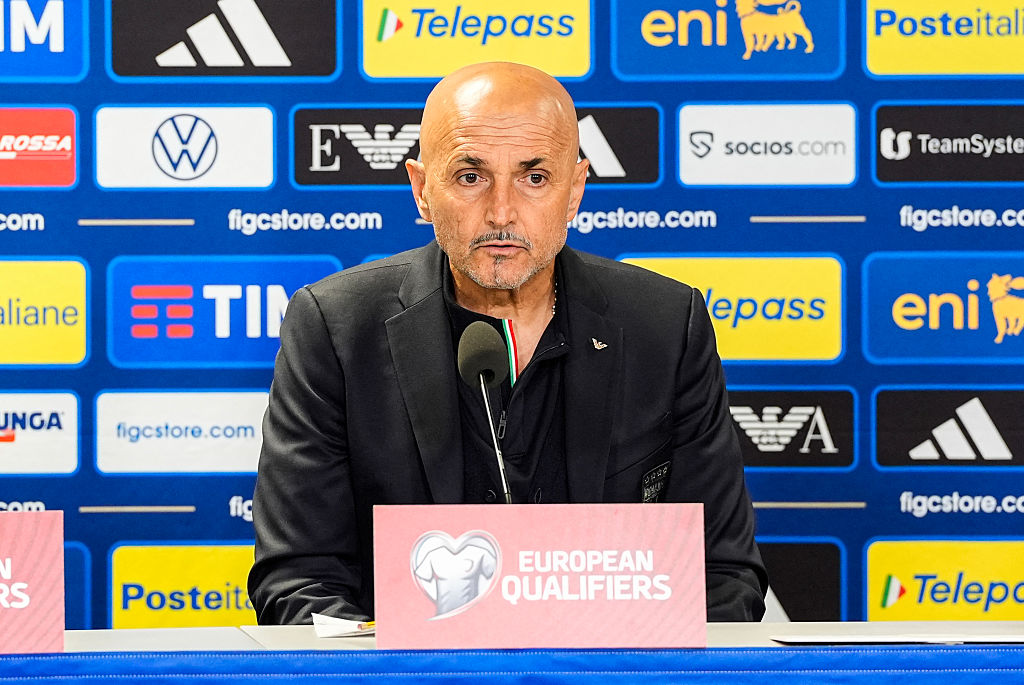
Luciano Spalletti’s experience as the coach of the Italian national team, which began on September 1, 2023, seems destined to end after the next match against Moldova.
He has led 23 matches, with 11 wins, 6 draws, and 6 losses.
There are many criticisms against the coach, who took over the Italian bench after winning the Scudetto with Napoli to reopen a cycle after the disappointments of Mancini’s post-Euro 2020 management.
The team’s poor performances at Euro 2024, the elimination in the quarterfinals of the Nations League against Germany, and now the defeat against Norway, which puts the Azzurri’s chances of qualifying for the 2026 World Cup at risk, weigh heavily on the coach.
Let’s take stock, then, to draw a balance of Spalletti’s experience on the Italian bench.
Euro 2024, the first cracks
The beginning of Spalletti’s experience on the Italian bench was quite positive. The coach had taken over from Mancini in the middle of the Euro 2024 qualifiers, with two games already played.
Aside from a 3-1 defeat against England, the top-ranked team in the group, and a draw against Macedonia in his first game in charge of the Azzurri, Spalletti had managed to secure a not-so-easy qualification, decided on the last matchday by goal difference after a goalless draw with Ukraine, their direct opponent.
If Italy arrived in Germany as the reigning champion, it was not as a favorite. However, no one could have predicted how disastrous the European Championship would be.
Italy, which had been lined up with a 4-3-3 formation in continuity with Mancini’s team, was lined up with three different modules in the course of four games in the tournament.
If the 4-2-3-1 and 4-3-3 are two modules that are partly interchangeable, the composition of the departments in the call-ups suggests that the initial idea was to line up a three-man defense, called upon by many to enhance the “Inter block” in defense.
A module that, however, Spalletti used only in “panic mode” after the defeat in the second game against Spain: in the end, qualification came only at the 98th minute thanks to a magic trick by Calafiori and Zaccagni, but the insipid performance against Switzerland in the round of 16 determined the end of the European Championship for the Azzurri.
World Cup at risk, once again
After the traumas of the playoffs against Sweden and Macedonia, Spalletti was asked above all for one objective: for Italy to finally return to play in a World Cup after two missed qualifications.
An objective that is now decidedly at risk, and for which Italy, after just one game played in the qualifiers, is no longer in control of its own destiny.
There are not only some difficult-to-understand choices in the call-ups: Rugani called up in defense before Mancini, whom the coach had praised in a press conference, saying he was sorry to have left him at home; but also the absence of a Cristante who had finished the championship in great form and Zaccagni, often overlooked even in the past by the CT.
The way Norway defeated the Azzurri, overwhelming them offensively (3-0 with a sensational post) and without leaving room for a comeback (only one shot on goal for the Azzurri, during injury time) highlights the many cracks in Spalletti’s game.
A game that has not only highlighted the great offensive sterility of Italy in recent years, only partially stemmed by the additions of Retegui and Kean: it is an Italy that has few ideas in midfield and provides few balls to the attack.
Mostly, it is an Italy that shows several defensive cracks that in other times would have been considered a sacrilege for our national team, from the many goals conceded from set pieces in the Nations League to the way Haaland, Nusa, and company penetrated our defense like butter.
An incompatible character?
Luciano Spalletti has always been a blessing and a curse for the teams that employed him, also due to his statements, which are often rich in clever images and capable of being etched in memory, but also always pungent and imbued with controversy.
And often his experiences with clubs have ended precisely because of an unstable character, always on a collision course with players, management, or the environment.
Spalletti’s experience with the national team has not been an exception, starting from the apologies at the end of the European Championship, in which many have read a criticism of the players and a justification of his work, and the accusation of the presence of a mole in the locker room.
In recent days, the controversies have resurfaced, starting with the Acerbi case, with the defender’s refusal to be called up to the national team and the subsequent controversy, in which Spalletti’s predecessor Mancini also intervened, with that like on Acerbi’s post and the consequent jab from the current CT: “They must have hacked his phone, I couldn’t think otherwise”.
Orsolini was also struck, who, despite being often overlooked by the call-ups despite his consistent good performances for Bologna, was told by the CT to “not go alone and play with the team”.
In short, a relationship that is too turbulent for a coach who has never managed to spark the spark with the national team, which has returned to indifference after the enthusiasm of 2021.
This article was translated into English by Artificial Intelligence. You can read the original version in 🇮🇹 here.
📸 LISE ASERUD – Lise Åserud / NTB









